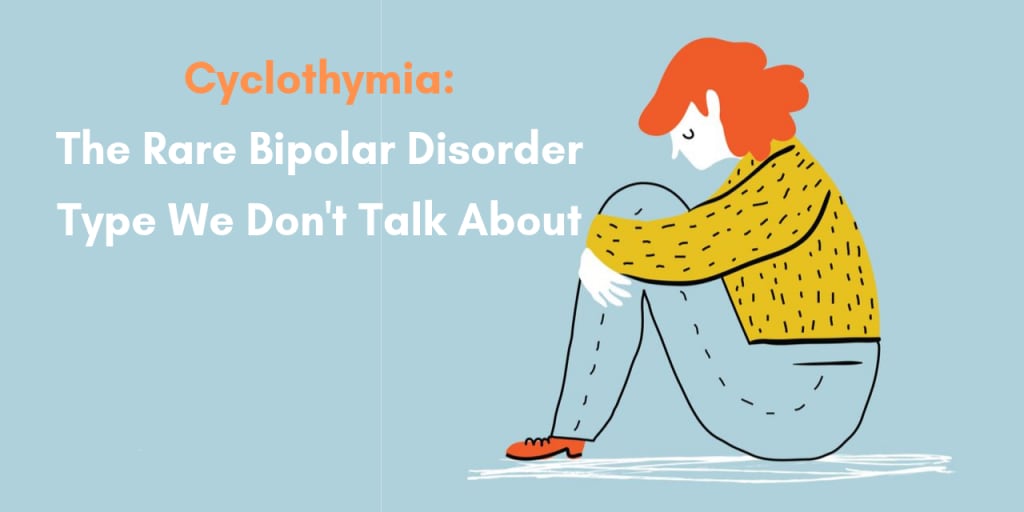Parenting with Cyclothymia: Navigating the Challenges of Mental Illness and Family Life
Parenting with Cyclothymia: Navigating the Challenges of Mental Illness and Family Life

Parenting is a rewarding but challenging experience, and when you add mental illness to the mix, it can become even more difficult. Cyclothymia is a mood disorder that affects approximately 1% of the population. It is characterized by periods of hypomania and depression that are less severe than those experienced in bipolar disorder. However, cyclothymia can still have a significant impact on an individual's ability to function in their daily life, including their ability to parent. In this article, we will explore the challenges of parenting with cyclothymia and discuss strategies for navigating them.
Understanding Cyclothymia
Cyclothymia is a mood disorder that is characterized by periods of hypomania and depression. Hypomania is a less severe form of mania and is characterized by elevated mood, increased energy, and a decreased need for sleep. Depression, on the other hand, is characterized by low mood, decreased energy, and feelings of sadness and hopelessness.
The symptoms of cyclothymia can vary from person to person and can range from mild to severe. Some individuals may experience more hypomanic symptoms, while others may experience more depressive symptoms. The mood swings associated with cyclothymia can occur rapidly, with some individuals experiencing multiple mood swings in a single day.
Parenting with Cyclothymia
Parenting is a demanding and challenging job, and when you add cyclothymia to the mix, it can become even more challenging. Cyclothymia can affect an individual's ability to function in their daily life, including their ability to care for their children. Some of the challenges of parenting with cyclothymia may include:
Mood swings: The mood swings associated with cyclothymia can make it difficult for parents to provide a stable and consistent environment for their children. Parents may be hypomanic one day and depressed the next, which can be confusing for children.
Energy levels: Individuals with cyclothymia may experience periods of decreased energy, which can make it difficult to keep up with the demands of parenting. This can lead to feelings of guilt and inadequacy.
Irritability: Irritability is a common symptom of cyclothymia, and it can be difficult to control when interacting with children. This can lead to conflicts and tension within the family.
Medication side effects: Many individuals with cyclothymia take medication to manage their symptoms. However, these medications can have side effects that can impact an individual's ability to parent, such as drowsiness, nausea, and weight gain.
Navigating the Challenges of Parenting with Cyclothymia
Parenting with cyclothymia is not easy, but there are strategies that can help. Here are some tips for navigating the challenges of parenting with cyclothymia:
Seek treatment: It is essential to seek treatment for cyclothymia to manage symptoms and improve your ability to function. Working with a cyclothymia specialist can be helpful in developing a treatment plan that works for you.
Build a support network: Building a support network of family, friends, and mental health professionals can provide you with the help and support you need to manage your symptoms and care for your children.
Practice self-care: Taking care of yourself is essential when parenting with cyclothymia. Make time for activities that you enjoy, such as exercise, reading, or spending time with friends.
Communicate with your children: It is important to communicate with your children about your condition and how it may affect your ability to parent. This can help to reduce confusion and tension within the family
Develop a routine: Establishing a routine can help provide stability and consistency for both you and your children. This can help to minimize the impact of mood swings and provide a sense of predictability for everyone in the family.
Use coping strategies: Developing coping strategies can be helpful in managing symptoms and reducing stress. This can include activities such as meditation, deep breathing, and journaling.
Consider family therapy: Family therapy can be a useful tool in managing the challenges of parenting with cyclothymia. It can help to improve communication, reduce conflicts, and strengthen relationships within the family.
Educate yourself and your family: Educating yourself and your family about cyclothymia can help to reduce stigma and increase understanding. This can also help your children to understand that your mood swings are not their fault and that they are not alone in their experiences.
Be gentle with yourself: Parenting is hard, and parenting with a mental illness can be even harder. It is important to be gentle with yourself and to remember that you are doing the best you can.
Working with Cyclothymia Specialists
Working with a mental health professional who specializes in cyclothymia can be beneficial in managing symptoms and improving your ability to parent. Cyclothymia specialists have the knowledge and expertise to develop a treatment plan that is tailored to your specific needs and can provide ongoing support and guidance.
Cyclothymia specialists may include psychiatrists, psychologists, and social workers who have experience working with individuals with mood disorders. They can help to develop a treatment plan that may include medication, therapy, and lifestyle changes to manage symptoms and improve functioning.
It is important to find a mental health professional who you feel comfortable working with and who understands the unique challenges of parenting with cyclothymia. You may want to consider asking for recommendations from your primary care physician or reaching out to local mental health organizations for referrals.
Conclusion
Parenting with cyclothymia can be challenging, but it is possible to navigate these challenges with the right support and strategies in place. Seeking treatment, building a support network, practicing self-care, and communicating with your children are all important steps in managing symptoms and improving your ability to parent. Working with a mental health professional who specializes in cyclothymia can also be beneficial in developing a treatment plan that works for you. Remember, parenting is hard, and it is okay to ask for help when you need it.
About the Creator
Enjoyed the story? Support the Creator.
Subscribe for free to receive all their stories in your feed. You could also pledge your support or give them a one-off tip, letting them know you appreciate their work.





Comments
There are no comments for this story
Be the first to respond and start the conversation.